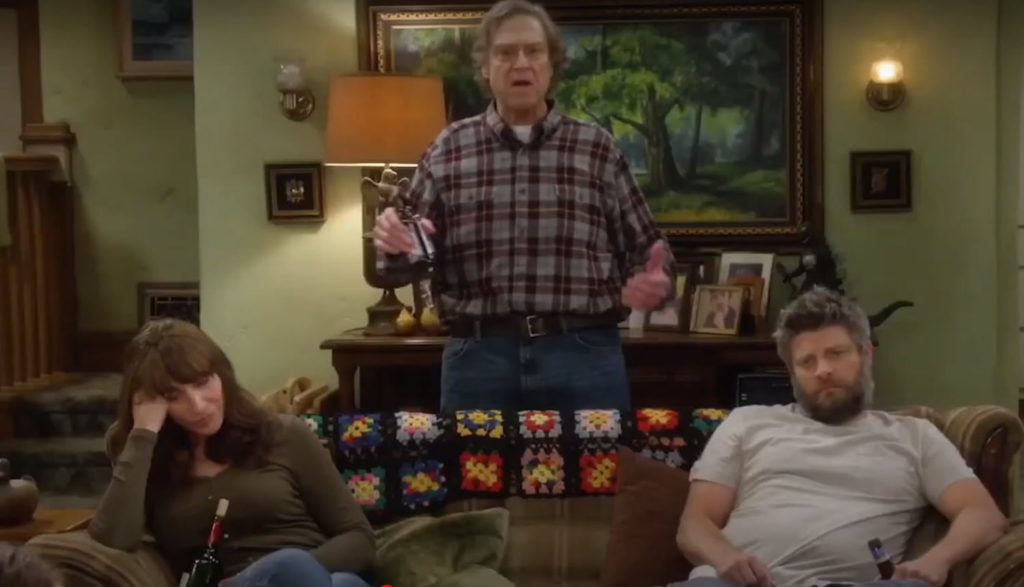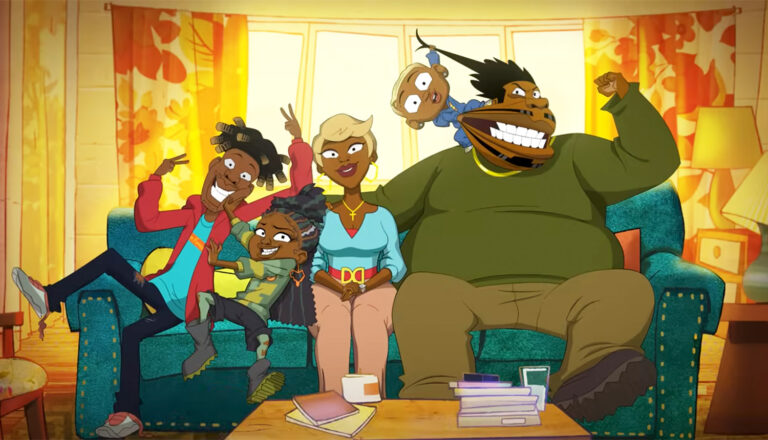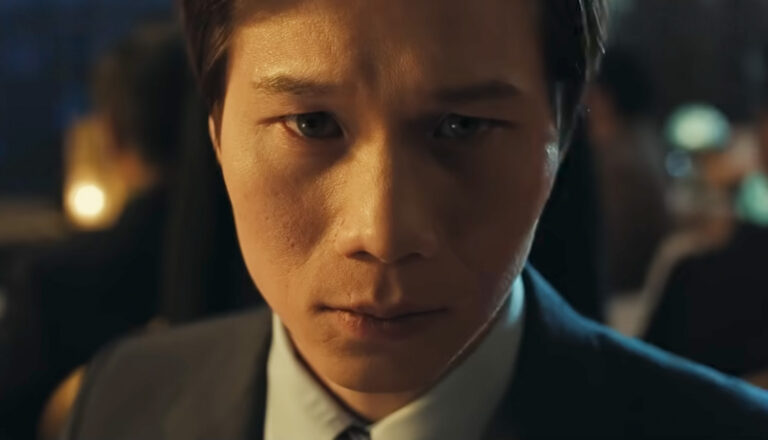
Frieren: Beyond Journey’s End
An elf mage contemplates on connection and regret as she watches her human friends grow old and pass away.

Her name might not be in the title anymore. But make no mistake: The Conners—at least in its opening stanza—is still all about Roseanne.
How could it not be? After all, the show’s original iteration was built around Roseanne Barr, who moved her earthy, sometimes crass standup comedy into a network sitcom and struck ratings gold. Roseanne originally ran for nine seasons, and it ranked at or near the top of the Nielsen ratings for most of its run. TV Guide declared it one of its “50 Greatest TV Shows of All Time.”
The show eventually imploded, of course, in a barrage of ludicrous plot twists. (Barr’s never done anything by half measures.) But no matter: As the 20th century became the 21st, and network hegemony gave way to the fractured television landscape of today, ABC turned its attention back to one of yesteryear’s greatest hits and put Roseanne back on the air.
At first, it felt like old times. Even the show’s ratings were logging lofty pre-cable, pre-streaming numbers. Then Barr fired off an insulting, seemingly racist tweet, and it was all over. Roseanne was no more.
You’d think ABC would’ve shuttered the whole enterprise, right? Once the cornerstone’s gone, the whole building’s bound to fall, right?
But ABC is made of sterner (or perhaps more delusional) stuff than that. Welcome to The Conners, or Roseanne without Roseanne. Here, we learn there’s some truth to that old adage: The more things change, the more they stay the same.
In the show’s latest incarnation, Roseanne Conner is dead. Not for pretendsies, as her hubby Dan apparently was during the show’s 1997 season, but for real—the victim of an opioid overdose. The surviving members of the Conner clan must somehow move on. But that’s not easy, given Roseanne’s outsized presence. Indeed, it takes two to really give the Conners a familial anchor.
Middle child Darlene, who moved back home last season, is already a single parent of two kids: Harris, a teen girl, and Mark, a cross-dressing lad “exploring his sexual identity.” Now she begins to assume the role of the family’s caregiver, as well, reining in her flighty sister, Becky, and coping with her well-meaning (but tightly wound) aunt, Jackie.
Meanwhile, Dan’s trying to adjust to his new familial role, too: He can’t just run to the garage whenever a conversation gets too ticklish for comfort anymore. He has to be the voice of gentle wisecracking wisdom now. Well, as wise as he can manage, at any rate.
Roseanne has always been rough, proudly working class and (at times) uncomfortably topical. Last year, the show became a cultural touchstone because of its titular character’s unabashed Trumpian leanings—doing everything but slapping on a “Make America Great Again” ball cap while jousting with Aunt Jackie over the day’s hot-button issues.
The Conners largely adheres to Roseanne’s old ethos. The humor still sometimes leans toward the crass and tawdry: Allusions to sexual hijinks seem to crop up on occasion.
It’s plenty topical, too, though perhaps the show’s inclinations are turning a bit to the left, at least in terms of social issues. For instance: Mark’s sexual preferences were featured last season, too. But with Roseanne gone, Dan’s forced to deal with the issue more than he’s had to do in the past: In the first episode, Dan helps Mark decide what boy to sit beside on a bus—thus indicating his level of romantic interest for the guy. “Enrique’s a keeper!” Dan proclaims. Language can muss the proceedings, as well.
These are all important elements to grapple with when considering whether to watch. The Conners, like Roseanne, would’ve never gotten a green light back in TV’s Golden Age.
That said, The Conners does share some similarities with the family sitcoms of yesteryear: The characters care—and care deeply—about family. They love each other, even if they struggle to show it. They respect each other underneath the constant wisecracks. In the midst of their anger and exasperation and grief, they’re still a family. They pull together in the tough times. And that’s a lesson we could all embrace a little more—even if not everything on this show is worthy of a hug.
COVID-19 causes strife in the Conner household when Mark gets into a fight with a classmate over mask regulations, and Mary (daughter of Darlene and Becky’s brother, D.J.) tells her aunts that her dad often leaves her alone all day while he is working.
We hear that one of Mark’s classmates teased him about wearing a mask. (We also learn that the boy’s dad might lose his job because of social distancing.) Mark tried to explain that he wears the mask not out of fear, but out of consideration for others’ health. However, he also called the guy an “idiot.” The kid hit him and Mark hit him back, resulting in a two-day suspension from school.
Darlene and Dan argue about whether it’s a good idea to talk to people who have differing viewpoints on politics and the coronavirus. D.J. gets angry when Darlene and Becky make the decision to move Mary into their house without consulting him (to be fair, they tried calling him but were unable to get a hold of him). They explain that Mary said she was sad being a “latchkey” kid, and he defends himself saying that the extra hours at work will pay for her to go to college someday.
We see many Halloween decorations, including animated severed limbs, blood dripping from walls and skeletons. People dress up in costumes (monsters, witches and cursed, murderous nurses, to name a few). One girl also pretends to make out with a skeleton.
People joke about diabetes, alcohol, carrying razor blades and eating children. We hear the words “h—” and “a–,” as well as a misuse of God’s name.
In the series’ first episode, we enter into the familiar Conner household about three weeks after Roseanne apparently died of a heart attack. But then the coroner calls to say that she actually overdosed on opioids that she had obtained illegally.
When Dan learns that Marcy Bellenger supposedly supplied the fatal dose, he plasters a sign across his truck blaming Marcy directly for his wife’s death. But when Marcy confronts him—and when his daughter Darlene finds another secret stash of pills—he realizes the issue’s not so simple: Because of the cost of healthcare, an informal drug ring’s been operating in the neighborhood to help people with legitimate ailments. Marcy says she would’ve never given Roseanne the painkillers had she known Roseanne had a drug problem.
Dan also helps Mark, his grandson who wears skirts and makeup, to decide which boy to sit by on a bus trip. “Did you ever like a boy?” Mark asks. When Dan says no, Mark follows up with, “Does it bother you that I do?” “Of course not!” Dan says.
Darlene tells her niece, Mary, that Roseanne might be reincarnated as something else, like a grasshopper. “Aunt Darlene should put away her yoga pants and pick up a Bible,” Mary’s mother, Geena, says. When Darlene says that a belief in reincarnation is shared by about a billion people, Geena says, “You better make your reservations in hell then, ’cause it’s gonna be crowded.” “Reservations?” Darlene responds. “We already have a cabana!”
We hear lots of references to opioids and Roseanne’s addiction, some of which make light of both issues. Marcy says that she’s drinking herself to sleep. When Dan goes to a bar and is given a free beer in sympathy for his grief, Dan says, “My loss is deeper than that. I think it goes all the way to Germany.” Becky, Dan’s oldest daughter, suggests that a date will keep her occupied until well into the morning, and she and Darlene argue over when each developed breasts. We hear that Roseanne never shut her robe when retrieving the morning paper—her next-door neighbor’s paper.
Family members insult each other. Characters say “a–,” “d–n,” “h—” and misuse God’s name three times.


Paul Asay has been part of the Plugged In staff since 2007, watching and reviewing roughly 15 quintillion movies and television shows. He’s written for a number of other publications, too, including Time, The Washington Post and Christianity Today. The author of several books, Paul loves to find spirituality in unexpected places, including popular entertainment, and he loves all things superhero. His vices include James Bond films, Mountain Dew and terrible B-grade movies. He’s married, has two children and a neurotic dog, runs marathons on occasion and hopes to someday own his own tuxedo. Feel free to follow him on Twitter @AsayPaul.

Emily studied film and writing when she was in college. And when she isn’t being way too competitive while playing board games, she enjoys food, sleep, and geeking out with her husband indulging in their “nerdoms,” which is the collective fan cultures of everything they love, such as Star Wars, Star Trek, Stargate and Lord of the Rings.

Kristin Smith joined the Plugged In team in 2017. Formerly a Spanish and English teacher, Kristin loves reading literature and eating authentic Mexican tacos. She and her husband, Eddy, love raising their children Judah and Selah. Kristin also has a deep affection for coffee, music, her dog (Cali) and cat (Aslan).

An elf mage contemplates on connection and regret as she watches her human friends grow old and pass away.

Netflix takes a classic sitcom, Good Times, and turns it into a vulgar, violent, sexually-charged TV-MA show.

While its protagonist might live a nuanced life, The Sympathizer’s problematic content can’t be described the same way.